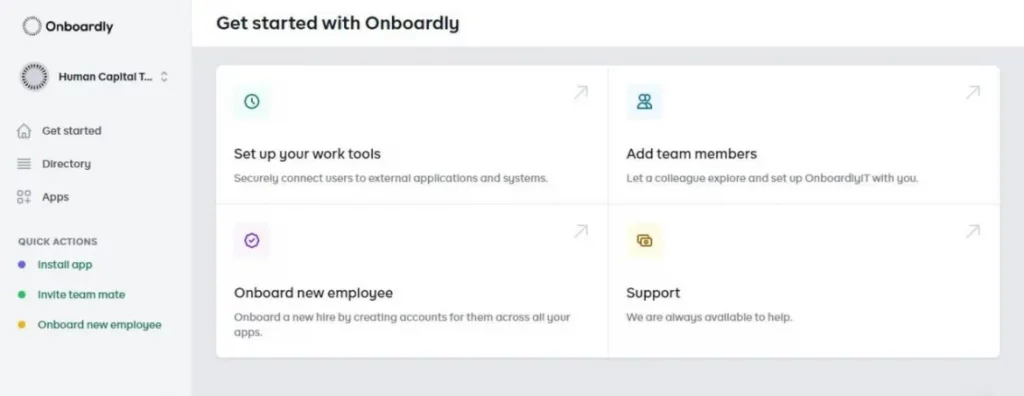The process of hiring, onboarding, and managing new employees can be time-consuming and error-prone. From sending out contracts to signing them, to granting access to companies’ communication tools like Slack and engineering tools like Github, the process could take between one to two weeks. If a particular human resources (HR) startup, Onboardly, has its way, that process would take 10 minutes, tops.
Founded in 2021 by Joshua Oguntade, Onboardly is an employee onboarding and management software for companies, with an obvious bias for fast-growing startups. According to Oguntade, the company’s thesis is that if startups must grow fast, all its processes must be agile, especially in hiring and making sure new hires settle in efficiently. Oguntade, who is a Nigerian based in Ghana, ideated the thesis to remove onboarding sluggishness for African companies when he got a job at GitHub.
“It took only three days for me to be onboarded,” Oguntade, speaking from his home in Accra, told TechCabal over a call. “Everything was automated so that within my first week, I was already familiar with every tool I needed to work and was almost ready to start pushing production code.”
Oguntade is a software engineer. From 2016–2018, he was at MEST Africa in Ghana as a resident entrepreneur. He joined GitHub as a contract software engineer and later, Andela, as a senior software engineer, the same year he left MEST. In 2020, however, he joined Flutterwave as a product manager for compliance, a role he sat on for over a year, before resigning to start his own company. Having worked with several companies in different capacities, Oguntade said he’s seen how boorish human relationship management can be.
“At Onboardly, we enable companies to manage their employee pools from point A to Z. There’s too many stops, and we are consolidating all of them in one platform,” he said.
Today, the company allows companies to perform all their onboarding tasks: sending contracts, creating work emails, and giving access to working tools. On the company website, a quick video demo shows how new employees can be given access to all the things they need to get their work done. Access can also be revoked from employees when they are exiting the company.
Onboardly is integrated with tools like Google Workspace, Microsoft, Slack, Jira, Heroku, Asana, GitLab, GitHub, and Basecamp. What this means is that, if a company uses these tools, accounts can be created for new hires, manage, and withdraw employee access to these accounts via Onboardly.
The platform also provides businesses with a single hub to take headcounts and access their employee directory. Oguntade said their platform cleansed, streamlined, and arranged employee data in such a way that companies can easily delegate tasks to a particular employee or vice versa. One employer (let’s say a manager) can also invite teammates whom they’d like to help manage their company’s account.

The CEO said that the company is working towards partnering with more companies, both local and international, to ensure that “we can help businesses create maximum happiness for their employees”. For instance, Onboardly has partnered with WiiCreate, a Nigerian startup that creates branded merchandise for startups, to enable companies to choose to send swags to their employees after or during onboarding, right there from the Onboardly dashboard.
According to the CEO, Onboardly makes money from charging a flexible monthly subscription of $50 for companies with just 20 employees. For those with more than 20 employees, the company charges $4 on every employee per month. Oguntade said over 170 companies are currently using Onboardly across the world, and “a bulk of them are in Nigeria and Ghana, and are Y Combinator companies including Mono, Curacel, Float etc”.
Onboardly maintains a lean team of five, where Oguntade doubles as CEO and CTO of the company. The startup has raised a pre-seed round to build out more features and extend its offerings. Oguntade said while the company is always on the lookout for great investors, their runway would be on the good side for some time.
“We started from making onboarding employees quick and efficient, but the goal is to help startups create a happy culture for their employees,” he concluded.



















